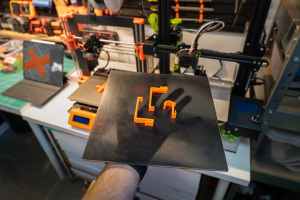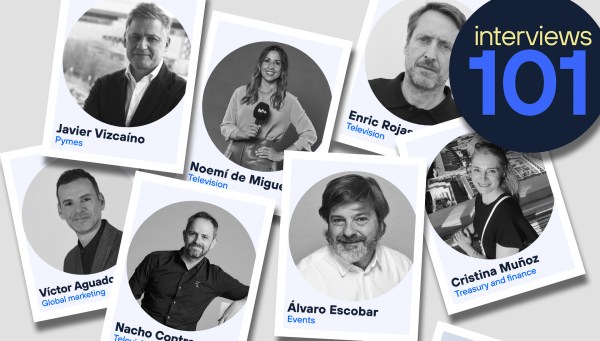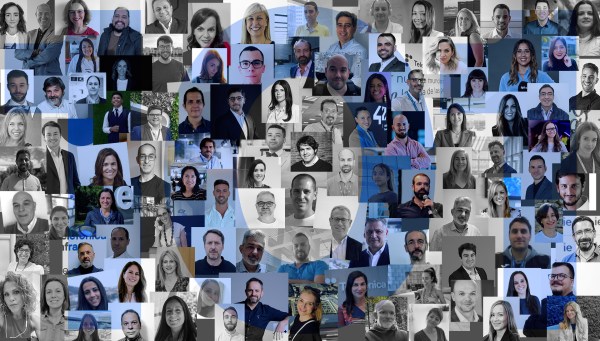Tell us a little about yourself. What does your job at Telefónica involve?
I have just celebrated my 25th anniversary with the Telefónica group, during which time I have had the privilege of living and working in three countries: Spain, the United States, and Brazil. During this time, I have witnessed the profound transformation of the telecommunications sector in its three segments and have promoted the adoption of digital technologies in companies and public administrations in the countries where we operate.
I currently hold the position of Director of Artificial Intelligence and Data at Telefónica Tech, where I am responsible for positioning the company as a leader in the provision of AI services for businesses. I have the privilege of leading an exceptional team, with whom we drive the profitable growth of this business, helping our customers transform and optimize their operations through the advanced use of data and AI.
From your experience, how have you seen the evolution of transformative technologies such as Big Data, AI, and IoT?
I believe that the evolution of these technologies can be described as both exciting and challenging. Big Data, AI, and IoT have reached a remarkable degree of maturity, establishing themselves as fundamental pillars of digital transformation in companies.
In addition, these technologies, together with the Cloud, Blockchain, and Cybersecurity, are becoming increasingly integrated with each other, enabling organizations to analyze large volumes of data in real time and optimize their operations securely. At Telefonica Tech, we integrate all these solutions to generate a tangible, measurable, and sustainable impact on our business customers’ businesses.
How will these technologies influence the future of the business world?
If there is one thing that those of us who work in new technologies have learned, it is that they evolve at an astonishing speed, exceeding even the most optimistic expectations. This is what has happened, for example, with generative AI, where, in just a few years, we have moved to models capable of generating text, images, music, and videos with near-human quality and creativity.
There is no doubt that all companies, regardless of their size or sector, will integrate AI-based solutions to personalize services and automate processes.
Specifically, AI agents will have a transformative and profound impact on organizations in the coming years, automating internal flows such as marketing, finance, and customer service, redefining roles, and significantly boosting employee productivity.
And in society as a whole?
Artificial intelligence (AI) has become deeply integrated into our daily routines and society. Often, however, its workings are invisible, operating in the background to improve experiences and solve problems automatically.
In our daily lives, for example, AI personalizes the user experience on streaming platforms, virtual assistants, and social media. For its part, the IoT connects everyday devices and objects to the Internet, facilitating home automation and more efficient urban management.
Another area where these technologies generate the greatest benefits is healthcare. The combination of AI and IoT enables faster and more accurate diagnoses, remote patient monitoring, personalized treatments, and disease prevention through the analysis of large volumes of medical data, complementing medical professionals and enhancing their capabilities.
Artificial Intelligence is one of these booming new technologies. What room for improvement does it offer in the future?
Despite the remarkable advances in artificial intelligence in recent years, its potential remains extraordinary and is far from exhausted. It is truly exciting.
One area where significant advances are expected is collaborative networks of AI agents, allowing multiple agents to work together in a coordinated manner. In the business world, these networks will facilitate the comprehensive automation of workflows, improving operational efficiency and reducing costs.
Another area that will also mark a turning point in the evolution of AI is quantum computing. It will enable the resolution of simulation and optimization problems that are unfeasible with current technology in the fields of healthcare and pharmaceuticals, logistics, energy, and finance. At Telefónica Tech, we are already preparing to offer these new services to our customers.
What challenges do you face?
Beyond the opportunities, the implementation of artificial intelligence in companies requires overcoming obstacles that can hinder the adoption of AI. Some of these challenges are integration with existing systems, the shortage of qualified talent, resistance to change due to fear of automation, and ensuring that models are ethical and fair, avoiding the perpetuation of bias or discrimination in results. At Telefónica Tech, we help customers manage these challenges effectively to harness the full potential of AI.
Who would you nominate from Telefónica for this interview who you consider to be excellent at their job?
I would like to nominate Diego Colchero, Director of Legal Affairs at Telefónica Tech. He has a very interesting career and, thanks to his commitment and that of the excellent legal team he leads, we feel protected and supported in our work.







